Hello! How Would You Write A Dialogue In Which A Character Is Freaking Out About Something? I Generally
Hello! How would you write a dialogue in which a character is freaking out about something? I generally have them word vomit but I don't really like that style. If its too much could you show me an example as well?
Hi!
You could definitely word vomit – especially if your character is hysterical – but that’s not the only way to do it by any means. I know a few other ways.
1. Calmly.This is strange, considering your character is freaking out, but the freak-out is internal – they’re shutting themselves off due to shock. In this case, they would be quiet, sane, and even if what they’re saying is illogical, it would probably sound reasonable.
“I was right there when she shot him. He dropped like a sack of flour. I figured he was gone as soon as the bullet hit his chest. So now I’ve decided I’m gonna go after her. Right now. And I’m gonna kill her.”“What? You can’t do that!”“Sure I can. She killed him, so I kill her. It’s called justice.”“But- With just your bare hands?”“The way I feel right now, my bare hands are more than enough.”
Notice how the character who just watched their friend die in front of them isn’t yelling, isn’t stuttering, isn’t getting angry or crying – they’re perfectly calm, almost to the point of complete emotional shutdown.
2. Angrily.Some people get angry when they lose control and freak out – it scares them, and the fear manifests itself as anger. This type particularly happens when they’re upset about something and other characters aren’t taking it seriously or are shrugging off their concerns.
“No! It’s happening tonight! We don’t have time to think, or weigh things, we need to fucking leave! Now!”“We can’t. You know that, and you’d remember that, if you were thinking straight-”“I am thinking straight! It’s you who’s fucked in the head. I don’t give a damn what you think we can and can’t do, we need to clear out of here, right this second.”
As you can see, this character is freaking out – their concerns may or may not have a firm foundation, but obviously they are concerned, and that concern is manifesting itself as fury.
3. By stuttering.For some people, it’s hard to talk when they panic, because their minds race forward ahead of their mouths and they get tongue-tied. I typically see/use this with more anxious characters, or with characters who aren’t typically good at speaking anyways (in other words, who are uncomfortable talking).
There are a couple of different ways to stutter:a. Repeat the beginning of each word.
“I tr-tried to s-save him, but he wuh-wouldn’t l-let me … he knew it was g-going to happen. It’s my f-fault!”
(However, keep in mind that this kind of stuttering is more as if your character is crying and trying to talk through sobs and hiccups. Please use it sparingly – it can get old fast.)
b. Repeat words.
“No. No, I don’t know what’s going on, Ricky. Ricky, why would I have any idea? Don’t fucking look at me like that, Ricky. Don’t look at me like I’m lying.”
c. Insert filler sounds: “ah”, “uh”, “um”, and/or curse words.
“I, uh, I- fuck. I, ummm, I think maybe, ah, maybe we should leave?”
For more on stuttering – it can be hard to peg correctly – check out this post.
I hope this helps! If you need anything else, please feel free to ask. - @authors-haven
More Posts from Risingstarling and Others

Highlight above the brow, right above the very tip of the arch instead of under. This will help lift the face without making the eyelids look puffy or accentuating stray hairs.
How can I get faster at drawing? I want to start a comic series but I take too long to draw the strips.
Hi anon! This is a great question!
I would recommend not getting hung up during the sketching process. Sketching quickly without over editing will speed up your workflow a lot, and allow your work to flow more easily.
Practicing quick gesture drawing and composition thumbnails will be especially helpful for you, and hopefully help you gain both speed and confidence. Also study storyboarding concepts, as that might help you draw strips more quickly. A ruler might be helpful if going traditional, and digital will allow for faster and easier edits to strips.
Further Reading/Other Resources
How to Draw Faster - video
Speed Comicking – Artist Advice – Medium
Draw more Accurately - helpful because consistency in comics is good
Resources for Comickers
Hope this helped! Please consider giving this post a reblog/like if you enjoyed it! It helps @art-res reach more people!
More Helpful links: Ask a Question/Request a Tut |Submit a Tutorial | Promote Your Art Commissions to +15 K Dashes | Support my art on DeviantArt / Tumblr ( @astrikos )
Bio help
CREATING AN OC
Building Fictional Characters
Creating an Original Character
Fiction Writing: Creating a Character
How to Create a Character
How to Create a Fictional Character From Scratch
WRITING A BIO
Character Creation Form
Character Personality Creator
Writing Tips
Found here. Bio layouts still to come.
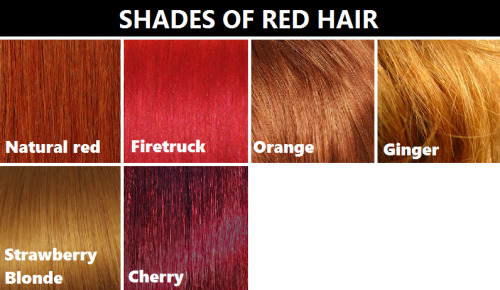
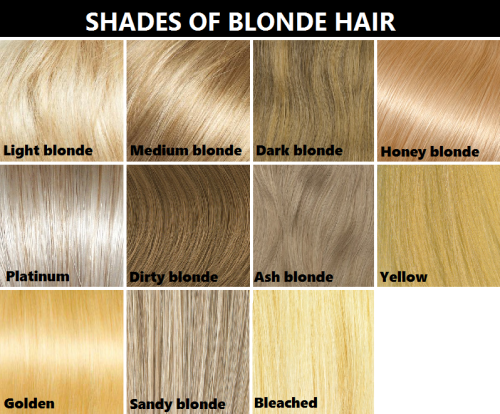
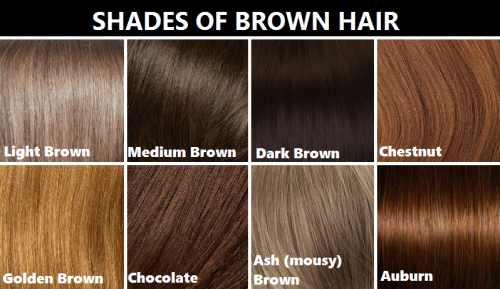


Hair color reference chart. It’s not perfect, but from what I could gather it’s pretty accurate.

Body Language Is More Revealing Than Words: How to Read People More Clearly
Our bodies can often be more honest than our words when it comes to communicating our thoughts, feelings, and intentions.
When we choose what to say, we’re often using the executive parts of our brains (the “neocortex”). This part of the brain is responsible for conscious attention, language, and thinking, all of which we have a degree of control over with some effort.
Because we have a choice in what we say, this makes it easier to conceal, deceive, and lie with our words.
However, we don’t usually choose our body language, which comes from the automatic parts of our brains (the “limbic system”). This part of the brain is responsible for our emotions, instincts, and gut reactions, all of which we don’t normally have control over.
According to What Every Body Is Saying: An Ex-FBI Agent’s Guide to Speed-Reading People, because our body language is more automatic than our speech, this makes it harder to conceal, deceive, and lie about our true thoughts and feelings through our bodies.
Therefore, if you want to learn how to better read people and understand what’s going on inside their minds, you need to listen more to what their bodies are communicating to you. Especially if it doesn’t match up with what they are saying.
Most of us know how to choose our words carefully. We are taught from an early age how to act polite and kind even when we don’t want to – or how to tell a harmless lie to protect someone’s feelings (“Thanks for the birthday gift! I always wanted socks!”)
However, we don’t often pay attention to what our body language is communicating. And because it happens automatically without us deliberately choosing, it’s harder to override how our body responds to a situation. Our bodies rarely lie.
In this article, I will share basic guidelines on what to look for in body language. This can also be a valuable resource in learning what your own body is communicating to others, perhaps without you even realizing it.
Click here to read more
High Payoff Scenes.
If that scene you meant to be emotional, jaw-dropping and climactic isn’t working right, try taking a step back.
All the usual aspects of a good scene also apply to the buildup toward a good scene. As well as including all these aspects into the scene itself, remember that at the point where your awe inspiring scene hits…
The reader should already feel deep, ‘positive’ emotions for the characters involved, whether that be love, intrigue, or an I love to hate them feeling.
The reader should already understand and have witnessed the characters struggling in some way with the goals they are working towards during that scene.
The reader should already have a clear picture of the character’s relationships and emotions, and understand which direction they are moving.
The reader should already be well-based in the plot and have a good understanding of every piece of information they need order to be fully immersed in the scene.
The reader should already have a clear picture of the current stakes and playing field, so they can decide what outcome to root for. (Or in some cases, they can feel the same desperation the pov character has as they realize there are no good outcomes.)
Most importantly, remember that there are no perfect first drafts, and barely any half-decent second, third, or fourth drafts either. If you need to rewrite and rewrite a few times over, that’s okay.
Just because the amazing scene in your head seems to fall short once it’s written, doesn’t mean all its amazingness isn’t still buried in there somewhere.









I’m sorry, apparently I have no impulse control.
Part one: money, leases, landlords, legal stuff
what papers do i need to rent a house?
Not a ton. You usually need your social security number, a driver’s license or state ID card, and copies of your paystubs or some other form of proof of income.
What is a mortgage and how does it work? Is renter’s insurance necessary? What do I do if my landlord is in violation of the lease?
A mortgage is a loan from the bank to buy a house. It’s a combination of the amount borrowed and the interest accrued. You agree to pay back the loan over a set period of time, in monthly payments. It’s a lot more involved than that so I guess let me know if you want more info on that, but you don’t really need to know about that until you’re purchasing a property.
Renter’s insurance is required by most landlords. This is so the insurance company covers it if your home is damaged by a natural disaster or a car through your wall or something. It also covers your home getting broken into. Renter’s insurance is really cheap, I think mine is $10 a month or something.
If your landlord is in violation of the lease, go above them and talk to their supervisor or the property management company. If they aren’t responsive then go to a tenant’s rights group in your area, or contact the Department of Housing (depending on how big the issue is).
hey how are you! been following you awhile now. just wondering like how much money you should save before moving out, some tips for people not making a lot of money and dying to leave their parents lol
The general rule is 3 months of living expenses plus emergency money. This should include: 3 months of rent, 3 months of utilities, 3 months of transportation expenses (bus/train fare or gas + auto insurance), 3 months of food, 3 months of phone/internet, 3 months of miscellaneous household shit
I’ll give you the breakdown for my house as an example:
$1300 rent x 3
$100 utilities x 3
$60 phone x 3
$70 internet x 3
$75 auto insurance x 3 OR $100 bus fare x 3
$200 food x 3
$50 houshold x 3 (toilet paper, toothpaste, paper towels, soap, cleaning supplies, towels, etc)
medical expenses, personal expenses, etc not included
$5565 total (not including gas because i forgot it)
Also, you need to put down a deposit on a unit and usually first months rent + last months rent. Deposits are generally one month worth of rent. This means total move in expenses for my house (NOT including utilities set up fees, internet fees, or any household expenses) were $3900 to my landlord.
Also broker’s fees are a thing in big cities but not Seattle.
You also have to factor in general house shit like furniture, silverware, towels, blankets, etc. Having zero furniture is cool for awhile but will make you crazy in a short period of time (example: I lived in an apartment with no dresser, couch, chairs, or desk for six months. My only furniture was a tiny bookshelf and a mattress. It was the worst. I was only living there temporarily and didn’t want to move furniture when I moved into my permanent house).
I don’t have any credit (never had a credit card, loans, etc.) will it be hard for me to get a place to rent?
In my experience, many places are wary of renting to people without credit. I think what generally turns them off is that you have never paid bills so they have no idea of knowing if you’ll be able to make rent on time. Oftentimes they will ask for a cosigner on a lease if you don’t have credit. This means that your parent or relative (or anyone really) will sign the lease with you and also have their name on there. This is so that if you stop paying your rent, fuck up the apartment, etc, if they are unable to find you or you will not pay the rent/charges, your cosigner is responsible for paying them.
I recommend paying bills in your name or getting a credit card and using it RESPONSIBLY. That means utilizing 30% or less of your total credit available, and always making payments ON TIME, ABOVE the minimum payment. Pay a small bill that gets paid every month for sure with a credit card, like your phone bill or the internet bill.
I also recommend just moving into an established house and being put on the lease that way, or subletting. That way even though you don’t have credit you have rental history and references.
I know that when you rent a house you have to pay for things other than rent, what kind of stuff is normally included in that and how much is a reasonable amount to pay?
Other bills are generally water, sewer, garbage, and electricity, but it varies by location. In some states heating is separate, and it’s required for the landlord to pay the heating bill (though this may mean that they leave it on all winter and you cook, or they leave it on but really low and you freeze). The most common thing I’ve seen is that landlords pay w/s/g, and you pay for electricity. Again, this varies greatly by location. For example, my electricity gets billed 4x a year, so they’re pretty large bills when they come in, but it isn’t a monthly expense. Seattle is super mild so we don’t have air conditioning or regularly use heaters. We’re also running my boyfriend’s giant computer all the time. Our bills are generally $250-$350 every three months. This is split between four people so it’s not that bad, never more than $100 every cycle. But I gotta stress that this varies from place to place. I have friends that live in large houses with 5-6 people and their utilities are about $100 a month per person, on top of rent. You need to ask the landlord what they cover and what the utilities usually come out to every month.
HORROR STORIES/PREVENTATIVE MEASURES
When making your master post about basic tips etc, I’d like to share my horror story. I only turned on the water faucets in my bathroom not the kitchen and it turned out the cold water didn’t work. In addition the faucet was missing an aerator too so the water was super wiley. Ugh and I should mention I moved from an apartment on the 3rd floor of a building to the 10th and apparently the 10th floor has bug problems I could not foresee. Maybe some tips for prevent buggies?
Fuck that sucks. Bug tips right here. Know what they look like, don’t take furniture from the street!!!!!
WARNING SIGNS
what are some things you should watch out for when looking for somewhere to rent? With the landlord?
Unit: Lots of discarded furniture outside/by the dumpster/in communal spaces (bedbugs). Dirty communal washing machines. Dirty lobbies. Weed smell (personal preference lol). Indoor smoking. Established (5 years or older) building and many empty units. Many people leaving after year-long leases.
Landlord: Are they shady? Do they tell you about their drug habits? Do they use hard drugs? Do they accept 12 applications even though they know that the first person is going to get the unit (applications are $20-$50 each usually)? Do they avoid showing you parts of the building? Are they creepy? Do they hit on you? These are all things I have had happen when looking for a place and they were all huge red flags. Don’t rent from someone that does any of those things.
im viewing an apt tomorrow and making a list of questions to ask landlord. is there anything specific i should ask thats often forgotten?
What are the utility bills generally running each month? How long do tenants usually live in the unit? How much has the rent increased over the last three years? What kind of people live in the apartments (families, students, DINKs?)?
disclaimer: all of this varies place to place, city to city, state to state, etc. this is just based on my experiences viewing hundreds and hundreds of houses and apartments in seattle.


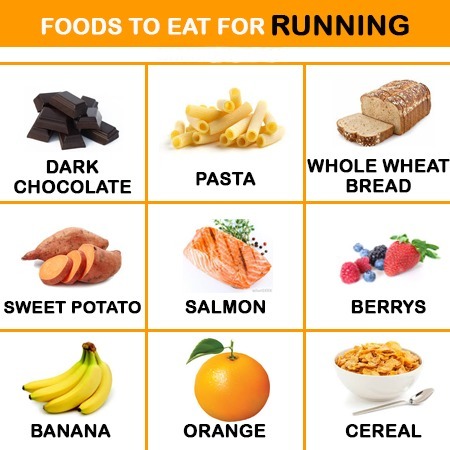





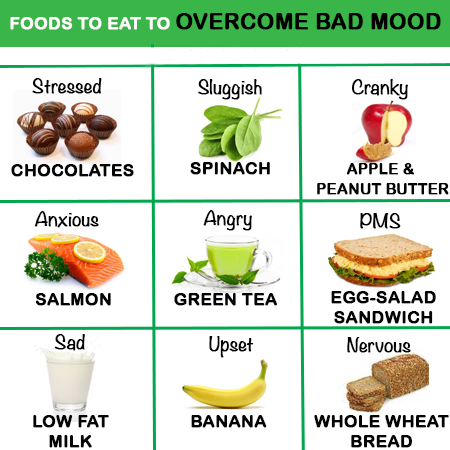



-
 szaranagajama reblogged this · 2 months ago
szaranagajama reblogged this · 2 months ago -
 darkxwo1f17 liked this · 7 months ago
darkxwo1f17 liked this · 7 months ago -
 heckcareoxytwit reblogged this · 7 months ago
heckcareoxytwit reblogged this · 7 months ago -
 animeschibia reblogged this · 8 months ago
animeschibia reblogged this · 8 months ago -
 audacityinblack reblogged this · 1 year ago
audacityinblack reblogged this · 1 year ago -
 the-angry-stripper liked this · 1 year ago
the-angry-stripper liked this · 1 year ago -
 garry34 liked this · 2 years ago
garry34 liked this · 2 years ago -
 recsources reblogged this · 2 years ago
recsources reblogged this · 2 years ago -
 mayorspatula liked this · 2 years ago
mayorspatula liked this · 2 years ago -
 art-emissss liked this · 2 years ago
art-emissss liked this · 2 years ago -
 somethingdowitharthere reblogged this · 2 years ago
somethingdowitharthere reblogged this · 2 years ago -
 sentimental-sarabande liked this · 2 years ago
sentimental-sarabande liked this · 2 years ago -
 wordfather liked this · 3 years ago
wordfather liked this · 3 years ago -
 meown-tain liked this · 3 years ago
meown-tain liked this · 3 years ago -
 theofficialclowngirl reblogged this · 3 years ago
theofficialclowngirl reblogged this · 3 years ago -
 yesireblogstuff reblogged this · 3 years ago
yesireblogstuff reblogged this · 3 years ago -
 artdumppile reblogged this · 3 years ago
artdumppile reblogged this · 3 years ago -
 selkiescripts reblogged this · 3 years ago
selkiescripts reblogged this · 3 years ago -
 imaginarywhispers reblogged this · 4 years ago
imaginarywhispers reblogged this · 4 years ago -
 hopefulmelodys liked this · 4 years ago
hopefulmelodys liked this · 4 years ago -
 yamsraptor liked this · 4 years ago
yamsraptor liked this · 4 years ago -
 galarchomp reblogged this · 4 years ago
galarchomp reblogged this · 4 years ago -
 supermiriosunshine reblogged this · 4 years ago
supermiriosunshine reblogged this · 4 years ago -
 friskbitz reblogged this · 4 years ago
friskbitz reblogged this · 4 years ago -
 biofiend liked this · 4 years ago
biofiend liked this · 4 years ago -
 melodie3672 liked this · 4 years ago
melodie3672 liked this · 4 years ago -
 fun-ishtimes liked this · 4 years ago
fun-ishtimes liked this · 4 years ago -
 dendrobow liked this · 4 years ago
dendrobow liked this · 4 years ago -
 pencilsandlaptops reblogged this · 4 years ago
pencilsandlaptops reblogged this · 4 years ago -
 whatactualfuckdude liked this · 4 years ago
whatactualfuckdude liked this · 4 years ago -
 nervyghost liked this · 4 years ago
nervyghost liked this · 4 years ago -
 deccy-weccy liked this · 4 years ago
deccy-weccy liked this · 4 years ago -
 even-subtext-is-canon liked this · 4 years ago
even-subtext-is-canon liked this · 4 years ago -
 arali-l-wolffe reblogged this · 4 years ago
arali-l-wolffe reblogged this · 4 years ago -
 arali-l-wolffe liked this · 4 years ago
arali-l-wolffe liked this · 4 years ago
Right now this is just anything that comes to mind since I'm a complete noob at tumblr. I've been hearing about it for years but I never really felt like I had anything to say. Well all that has changed now and I figured I'd see what all the hype about tumlr is really about. Anyway don't take anything I say too seriously for now...I'll probably change it later when I become more comfortable with this website.
168 posts